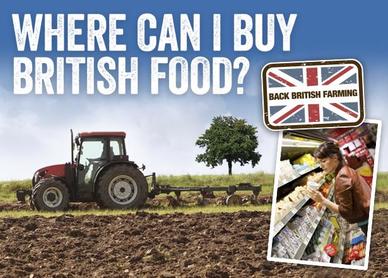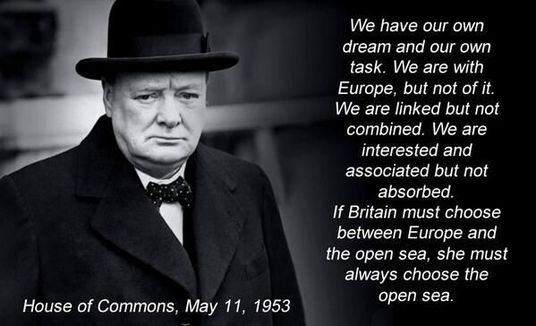
The referendum is exposing the more unpleasant side of certain individuals, but I suppose when your back is against the wall, it can bring out the worst in people.
Last week farmers from all sectors of the industry who believe that UK agriculture would be better off outside the EU launched ‘Farmers for Britain’. Farming Minister George Eustice, outlined how farmers will not be left without support after we Vote Leave. The EU’s Common Agricultural Policy (CAP) is bad for farmers and bad for Britain. It is extremely bureaucratic, burdensome and has complex rules made by unelected EU officials who have no understanding or knowledge of the UK’s industry, climate and geography.
The Minister made it clear that as we pay twice as much into the EU budget as we get out; (in 2015 £5.5 billion for the CAP, but only received £2.9 billion back) farmers will continue to be comfortably funded after leaving the EU, as was done before we joined.
The economists are predicting that British farmers are facing a lean year with commodities including grain, milk, beef, lamb and pork prices remaining at rock bottom.
However the outlook for 2016 for cereals is possibly looking less bearish, as extreme weather induced by the El-Nino effect, could influence growing conditions in Australia and Asia, as well as in the USA and Europe. And before writing off exports to China and India it should be noted that, in 1997/98 China and India’s combined vegetable oil consumption was around 18.3 million tonnes. Consumption last year, just eighteen years later, was more than 56.2 million tonnes.
With lower yields, and lower crop inputs in the face of poor profitability, and a global rising demand for ethanol as 75 million new cars were purchased last year, we can only hope this drives a recovery in the world demand for cereals. The USA exported ethanol and consequently reserves are now greatly depleted.
A world in which everyone has access to food at affordable prices should be a reality, or at the very least achievable. However, despite enough food being produced worldwide to feed all the people, over a billion suffer from chronic hunger.
Many factors in the developing world contribute to this problem including food waste, most significantly due to poor food distribution. It is vital to connect producers such as farmers and fishermen, to consumers, and to allocate the food accordingly. The challenge is deciding how the food will be distributed, who does it, and by what method.
There is a huge disparity in the world between people with adequate food and those starving or malnourished. The root causes are poor distribution, lack of infrastructure, unsustainable prices often driven by corruption and waste, inefficiency and poverty.
All these factors need to be addressed to create a world in which everyone has access to food at affordable prices, and of equal importance is that farmer producers receive a fair price for their products.
Things can quickly change down on the farm at this time of year. Already the crops are looking less stressed and the fields much healthier following their first top dressing of fertiliser. Crops have greened up and grown a good couple of inches, no doubt spurred on by the slightly warmer weather.
The countryside is beginning to look neat and tidy as grass fields are harrowed and rolled, and spring crops sown. This glorious picture of the countryside emerging neatly from a tricky winter through the efforts of the farming community, is however badly let down by the shocking amount of rubbish along roadsides and hedgerows.





 RSS Feed
RSS Feed